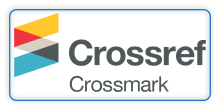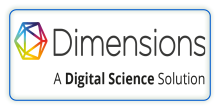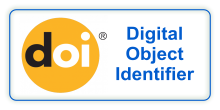KNOWLEDGE-BASED EXPERT SYSTEM TO ASSIST PHYSICIAN FOR DIFFERENTIAL DIAGNOSIS OF CHOLERA TROPICAL DISEASES
DOI:
https://doi.org/10.29121/ijoest.v9.i2.2025.677Keywords:
Expert System, Artificial Intelligence, Tropical Diseases, Cholera, Exsys CorvidAbstract
This article presents an expert system designed to assist physicians in the diagnosis of tropical cholera diseases, particularly those related to cholera. The objective of this article is to develop a framework for the diagnosis and monitoring of health care for cholera. The system is based on a set of rules and knowledge from doctors specializing in these pathologies. The design methodology is based on the collection of this knowledge to build a base of rules adapted to the specificity of symptoms and geographical contexts linked to tropical diseases. This system will potentially help doctors and the health sector to make a quick decision when diagnosing cholera. The development tool chosen for implementation is Exsys Corvid, a platform for creating and testing expert systems. Once the system is developed, its performance and effectiveness are validated using the K. Cohen method, which makes it possible to measure the reliability and agreement between the recommendations of the expert system and the diagnoses made by doctors. This system thus offers valuable support in the early detection of cholera diseases, reducing the risk of spread and optimizing the management of medical resources.
Downloads
References
Castañeda, M. B., Velázquez, L. E. C., Aguilar, S. S. R., Romero, J. S., & Escamilla, V. A. C. (2023). Expert System Through a Fuzzy Logic Approach for the Macroscopic Visual Analysis of Corroded Metallic Ferrous Surfaces: Knowledge Acquisition Process. Expert Systems with Applications, 214, 119104.
Chromik, M., & Butz, A. (2021). Human-XAI Interaction: A Review and Design Principles for Explanation User Interfaces. In Human-Computer Interaction–INTERACT 2021: 18th IFIP TC 13 International Conference, Bari, Italy, August 30–September 3, 2021, Proceedings, Part II, 18 (pp. 619–640). Springer International Publishing.
Cohen, K. (2023). Expert Systems in the Rapid Diagnosis of Infectious Diseases. Journal of Medical AI.
Dzemydiene, D., Bielskis, A. A., Andziulis, A., Drungilas, D., Dzindzalieta, R., & Gricius, G. (2010). The Reinforcement Framework of a Decision Support System for the Localization and Monitoring of Intelligent Remote Bio Robots. In Proceedings of the 10th International Conference “Reliability and Statistics in Transportation and Communication (RelStat’10), 20–23 October 2010, Riga, Latvia, 207–217.
Erman, L. X., Scott, A. C., & London, P. E. (1984). Separating and Integrating Control in a Rule-Based Tool. In Proceedings of the IEEE Workshop on Principles of Knowledge-Based Systems, IEEE, 37–43.
Feigenbaum, E. A., & McCorduck, P. (1983). The Fifth Generation: Artificial Intelligence and Japan's Computer Challenge to the World. Addison-Wesley.
Inusah, F., Missah, Y. M., Najim, U., & Twum, F. (2023). Integrating Expert System in Managing Basic Education: A Survey in Ghana. International Journal of Information Management Data Insights, 3 (1), 100166.
Kiryanov, D. A. (2021). Hybrid Categorical Expert System for use in Content Aggregation. Software Systems and Computational Methods, 4, 1–22.
Malbois, E., & Clavien, C. (2020). Overcoming the Limits of Empathic Concern: The Case for Availability and its Application to the Medical Domain. Medicine, Health Care and Philosophy, 23, 191–203.
Medjahed, H., Istrate, D., Boudy, J., Baldinger, J. L., Bougueroua, L., Dhouib, M. A., & Dorizzi, B. (2012). A Fuzzy Logic Approach for Remote Healthcare Monitoring by Learning and Recognizing Human Activities of Daily Living. In Fuzzy Logic – Emerging Technologies and Applications (pp. 21–40). ISBN: 978-953-51-0337-0.
Mishra, M. K., Abirami, T., Soundarya, S. R., & Sulochana, R. R. (2013). A Fuzzy-Based Model for Breast Cancer Diagnosis. International Journal of Scientific and Research Publications, 3 (3), 1–6.
Muzembo, B. A., Kitahara, K., Debnath, A., Ohno, A., Okamoto, K., & Miyoshi, S. I. (2022). Cholera Outbreaks in India, 2011–2020: A Systematic Review. International Journal of Environmental Research and Public Health, 19 (9), 2011–2020. https://doi.org/10.3390/ijerph19095738
Nascimento, D., & Notargiacomo, P. (2023). Proposal for an Expert System for Knowledge Evaluation and Corporate Training Suggestions. In Inted2023 Proceedings (pp. 6250–6257). IATED.
Rajdeep, B., & Sugata, S. (2012). Rule-Based Expert System for Diagnosis of Neuromuscular Disorders. International Journal of Advanced Networking and Applications, 4 (1), 1509–1513. ISSN: 0975-0290.
Sayed, B. T. (2021). Application of Expert Systems or Decision-Making Systems in the Field of Education. Information Technology in Industry, 9(1), 1396–1405.
Tartarisco, G., Baldus, G., Corda, D., Raso, R., Arnao, A., Ferro, M., Gaggioli, A., & Pioggia, G. (2012). Personal Health System Architecture for Stress Monitoring and Support to Clinical Decisions. Computer Communications, 35, 1296–1305.
World Health Organization (WHO). (2021). Cholera: Surveillance and Management. Centers for Disease Control and Prevention (CDC). (2022). Cholera in Developing Countries.
Yanase, J., & Triantaphyllou, E. (2019). A Systematic Survey of Computer-Aided Diagnosis in Medicine: Past and Present Developments. Expert Systems with Applications, 138, 112821.
Published
How to Cite
Issue
Section
License
Copyright (c) 2025 Humberto Cuteso Matumueni

This work is licensed under a Creative Commons Attribution 4.0 International License.






























